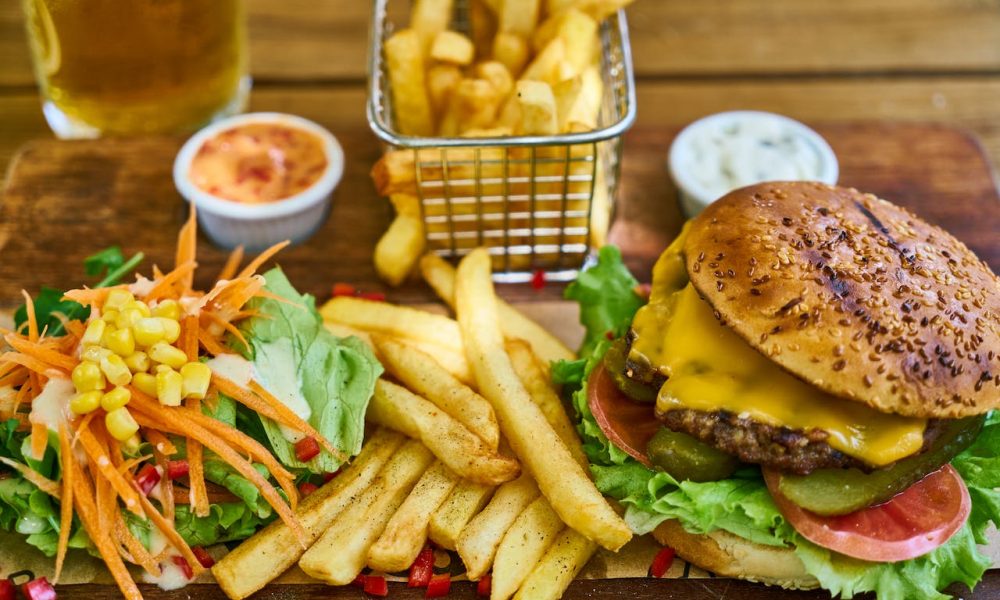
Too Much Intake of Protein Is NOT As Healthy As You Might Think

Proteins are often hailed as the macronutrient monarchs of our diet, lauded for their muscle-mending and appetite-appeasing powers. But is there a hidden side to this celebrated nutrient?
Let’s delve into why the “more is better” mantra does not hold up when it comes to protein.
Understanding Proteins and Their Sources
Proteins are organic molecules made up of amino acids that help in muscle building, hormone synthesis, and other vital functions. While we are quick to equate protein with a juicy steak or a hearty chicken breast, they are not the sole carriers of this nutrient.
A surprising variety of foods are protein-packed: Nuts, seeds, legumes, grains, and even vegetables can be excellent sources.

Askar / Pexels / Most protein-rich foods contain sugar, which can lead to weight gain.
The Cult of High-Protein Diets
The fitness and wellness cosmos is brimming with high-protein diet plans. These regimes stem from the protein’s ability to satiate and its role in building lean muscle mass.
However, what often gets lost in translation is the concept of ‘enough.’ The body has a cap on how much protein it can use effectively. The excess is not stored as protein but converted into glucose or fat for storage, leading to an unintended uptick on the scale.
How Excess of Protein Can Lead to Potential Health Issues?
Our bodies require a delicate equilibrium of nutrients, and tipping the scales with too much protein can throw this balance off-kilter.
Here is what happens when you board the protein excess express:

Kris / Pexels / Protein intake is not unhealthy; too much of it is!
The Weight Gain Conundrum
Contrary to popular belief, too much protein can lead to weight gain. Extra calories from any source, protein included, can result in fat storage if not burned off. The “protein equals muscle, not fat” equation is a half-truth.
In reality, unused amino acids from this nutrient excess turn into extra pounds if they are not needed for repair or energy.
Kidney Concerns
Your kidneys work tirelessly to expel waste products from protein metabolism. Flooding your system with more protein than it can handle may overburden these vital organs.
This means that it could potentially exacerbate preexisting kidney issues or contribute to the formation of kidney stones.
Nutritional Imbalance
High-protein diets can inadvertently lead to less room on your plate for other important nutrients. Carbohydrates and fats are not villains. They are essential energy sources and crucial for the absorption of fat-soluble vitamins.

Adrien / Pexels / Too much intake of protein can give birth to nutritional imbalances and kidney diseases.
Furthermore, neglecting fruits, veggies, and whole grains can deprive you of fiber and micronutrients necessary for overall health.
Bone Health Backfire
Calcium is the cornerstone of bone health, and overconsumption of protein, particularly from animal sources, has been associated with leaching of calcium from bones.
While this process might seem inconsequential in the short term, it can lay the foundation for osteoporosis later in life.
Finding the Protein Sweet Spot
Here is how you can find the balance:
Plant Power
Incorporate plant-based proteins such as lentils, tofu, and tempeh. These foods bring protein to the table along with fiber, antioxidants, and phytonutrients absent in their animal counterparts.
Lean and Mean
When you do opt for meat, choose lean cuts and consider portion sizes. A piece of meat the size of a deck of cards is ample for most meals.
Seafood and Seeds
Fish like salmon and trout are double-duty foods – rich in protein and omega-3 fatty acids. Similarly, seeds like chia, flax, and hemp seeds are not only protein-dense but also offer healthy fats.
More in Health
-
`
Why ‘Lüften’ Is the Perfect German Way of Staying Healthy This Winter
‘Lüften’ is the perfect German way of staying healthy during the winter – and it is easier than you think. It...
February 11, 2025 -
`
What Do We Know About Celestial Park at Universal Epic Universe So Far?
Get ready for an adventure that is truly out of this world. Opening May 22, 2025, Celestial Park will be the...
February 4, 2025 -
`
5 Songs That Redefine David Lynch’s Musical Legacy (1946 – 2025)
David Lynch, the legendary filmmaker, musician, and creative visionary, left an indelible mark not only on cinema but also on music....
January 28, 2025 -
`
Family Room vs. Living Room: Key Differences & Designing Tips
If you have ever wondered about the differences between a family room vs. living room, you are not alone. Although these...
January 21, 2025 -
`
How to Make Your Disney Family Trip Joyous & Unforgettable
Planning a family Disney trip can feel both exciting and overwhelming. With so much magic waiting around every corner, it is...
January 14, 2025 -
`
Taylor Swift and Travis Kelce Enjoy Rainy Date Night in NYC
Taylor Swift dates have always sparked interest. However, the star singer’s recent outing with Travis Kelce in rainy New York City...
January 7, 2025 -
`
2025 Interior Design Trends That Define the Homebody Era
As 2025 unfolds, homeowners are shifting their focus inward, finding comfort in staying put and enhancing their living spaces. With mortgage...
January 1, 2025 -
`
The Link Between Nerve Cells and Schizophrenia Explained
Schizophrenia, a complex mental health disorder, has long been treated symptomatically due to limited knowledge of its root causes. Recent research...
December 25, 2024 -
`
What Creates a Joyful Reading Experience for Children? Parenting Tips
Reading is more than a skill—it’s a gateway to imagination, knowledge, and personal growth. For children, discovering the joy of reading...
December 18, 2024















You must be logged in to post a comment Login